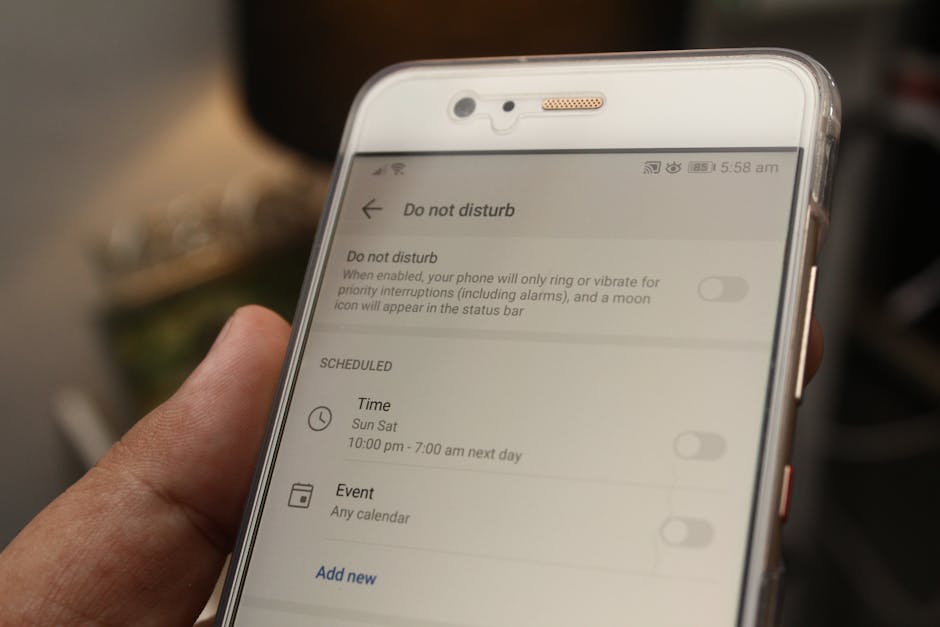The Hidden Cost of Entrepreneurial Pressure
Entrepreneur stress management is essential for maintaining both business performance and personal wellbeing. Here are the key strategies to manage entrepreneurial stress effectively:
- Identify your specific stress triggers (workload, finances, team issues)
- Implement daily self-care routines (exercise, sleep, nutrition)
- Master delegation and time management techniques
- Practice mindfulness and take micro-breaks throughout the day
- Build strong support networks with peers and mentors
- Set clear work-life boundaries to prevent burnout
- Develop a resilient entrepreneurial mindset
Six in ten Americans report feeling anxiety or stress every day, and entrepreneurs face even higher pressure. The constant demands of running a business—from decision fatigue to financial uncertainty—create a perfect storm for chronic stress that can derail both your health and your company’s success.
A 2023 German study found that while entrepreneurs enjoy greater autonomy than employees, they also work significantly longer hours—27% of entrepreneurs work more than 10 hours a day on over 10 days a month, compared to only 5% of employees. This relentless pace comes at a cost.
“Being an entrepreneur is stressful. From pitches to cash flow, from setbacks to deadlines, and from home life to working from home, it can all become a bit much,” notes research from entrepreneur support networks. But here’s the good news: these effects are not inevitable.
The most successful business owners understand that stress management isn’t just self-care—it’s a critical business strategy. More than 80% of world-class performers interviewed by Tim Ferriss practice some form of daily meditation or mindfulness as a stress management technique.
Interestingly, autonomy was found to be a significant protective factor for mental well-being in entrepreneurs, with a negative correlation to both workload demands and mental exhaustion. This means your freedom as an entrepreneur can become your greatest asset in fighting stress—if you learn to harness it effectively.

Entrepreneur Stress Management: 7 Science-Backed Tactics
What makes the stress you feel as a business owner different from what employees experience? It’s a question worth exploring before we tackle solutions.
According to the Job Demand-Resources model (a framework widely used by occupational health psychologists), entrepreneurs face a unique stress profile. While you enjoy greater autonomy than traditional employees, you’re also shouldering heavier burdens.
Recent studies paint a telling picture: a whopping 88% of entrepreneurs report high cognitive demands – that constant mental juggling of problems, decisions, and creative solutions. Even more revealing, nearly half (44.4%) of self-employed individuals say they’re “often to always” dealing with overwhelming workloads and time pressure.
Yet here’s the fascinating part – only 16.2% reported frequent mental exhaustion. This suggests that the freedom to call your own shots actually serves as a protective buffer against burnout. Your autonomy might be your secret weapon in the fight against stress.
But there’s a catch. Many entrepreneurs fall into what psychologists call “self-endangering coping strategies.” You might recognize these behaviors: extending your workday well into the evening (work prolongation) or powering through illness instead of resting (presenteeism). Research shows these habits actually intensify the connection between job demands and mental exhaustion, making your stress worse over time.
The good news? You can break this cycle. Entrepreneur stress management isn’t just possible – it’s a skill you can master with the right approach. Let’s explore seven evidence-based strategies that will help you maintain your entrepreneurial edge while keeping stress in check.
These tactics aren’t just feel-good advice – they’re grounded in research on the specific stressors entrepreneurs face, from decision fatigue to the cognitive load of managing multiple responsibilities. They also account for the difference between quantitative load (too many tasks) and cognitive load (complex problem-solving demands), giving you targeted ways to address both.
Ready to transform your relationship with stress? Let’s dive in.
1. Pinpoint Your Personal Stress Triggers
Ever feel like you’re drowning in stress but can’t quite put your finger on what’s causing it? That’s where most entrepreneurs get stuck. The first crucial step in effective entrepreneur stress management is becoming a detective of your own stress patterns.
Think of stress like a unique fingerprint—no two entrepreneurs experience it exactly the same way. Your business model, personality, and life circumstances create a personal stress profile that’s all your own.
I’ve talked with hundreds of business owners, and while their stories differ, certain patterns emerge. Most entrepreneurs find themselves stressed by:
Time pressure and workload that leaves you feeling like you’re constantly racing against the clock. That proposal due tomorrow, three client meetings today, and the accounting still not done? Yep, that’ll do it.
Financial uncertainty that keeps you up at night—whether it’s wondering if you’ll make payroll, stressing about inconsistent revenue, or feeling the weight of investor expectations.
Decision fatigue from making countless choices every day, from the trivial (what email to answer first) to the potentially business-altering (which strategic direction to take).
Team management challenges that transform you from entrepreneur to reluctant therapist, mediator, and sometimes, the bearer of difficult news.
Isolation that creeps in when you realize you have no colleagues to vent to or brainstorm with—particularly common for solopreneurs working from home.
Work-life boundary erosion when your smartphone pings with “urgent” messages during family dinner for the third time this week.
Research consistently shows that simply naming your specific stressors can significantly reduce their impact. It’s like turning on a light in a dark room—what seemed overwhelming becomes manageable when clearly seen.
“What specifically stresses you out?” should be the first question you ask yourself. Is it the seasonal rush before the holidays? That client who never pays on time? The team conflict that’s brewing? Or perhaps something outside work entirely, like family demands that compete with business needs?
Once you’ve identified your primary triggers, you can target your efforts where they’ll have the most impact. If decision fatigue is your nemesis, decision frameworks and delegation might be your best allies. If isolation is dragging you down, networking and community-building could be your priority.
| Entrepreneurial Stressors | Employee Stressors | Key Difference |
|---|---|---|
| Financial responsibility for entire business | Personal financial concerns | Scale and scope of responsibility |
| All final decisions rest with you | Limited decision authority | Decision burden and autonomy |
| Uncertain, variable income | Fixed, predictable salary | Financial planning challenges |
| No paid time off or benefits | Structured benefits package | Self-funding recovery time |
| Personal identity tied to business success | Job is one aspect of identity | Emotional and psychological investment |
| Responsibility for others’ livelihoods | Responsibility for own performance | Weight of leadership |
| No defined work hours | Set working schedule | Boundary enforcement |
The table above highlights why entrepreneurial stress differs fundamentally from employee stress. Understanding these differences helps explain why traditional stress management advice sometimes falls short for business owners.
Take a few minutes today to jot down your top three stress triggers. This simple cause analysis will give you clarity on where to focus your energy as we explore the remaining stress management strategies.
2. Make Self-Care a Non-Negotiable Business Habit
One of the most counterintuitive aspects of entrepreneur stress management is that taking time for self-care actually improves business performance. I’ve seen countless entrepreneurs push self-care to the bottom of their priority list, viewing it as a luxury they simply can’t afford. But here’s the truth—research consistently shows it’s not a luxury, but a necessity you can’t afford to skip.
Your physical health directly impacts your mental resilience and decision-making capacity. When you neglect your body, your business suffers too. Let me share what science tells us works best:
Physical activity might seem like the first thing to cut when deadlines loom, but even brief exercise sessions trigger endorphin release that reduces stress hormones and improves how your brain functions. According to research published by the Mayo Clinic, exercise delivers oxygen and nutrients to your tissues and improves cardiovascular efficiency—directly counteracting the physical effects of stress.
“Exercise is the turnkey solution for anxiety and mental clarity,” as one entrepreneurial study put it. Many business owners report their best ideas emerge during runs or weight sessions. The good news? You don’t need marathon training. Even a brisk 10-minute walk or quick stretching session between meetings can reset your stress response.

Sleep might seem negotiable, but sleep deprivation dramatically impairs the two skills entrepreneurs need most: decision-making and emotional regulation. Your late-night hustle might actually be sabotaging tomorrow’s productivity. Try prioritizing consistent sleep schedules, even during your busiest periods.
Your nutrition choices matter too. Did you know your brain consumes approximately 20% of your body’s energy? Those erratic eating patterns (or skipping meals entirely) directly impact your cognitive performance and stress resilience. As one entrepreneur candidly put it, “All the stuff your mom told you wasn’t just her being crazy.” Regular exercise, healthy eating, and sufficient sleep truly do form the foundation of stress resilience.
The secret to making self-care stick? Treat it with the same respect you give your most important business commitments. Block time in your calendar for exercise, meal preparation, and adequate sleep—and honor these appointments as you would meetings with your biggest clients. Your business depends on you showing up at your best, and that only happens when you prioritize your physical wellbeing.
Self-care isn’t selfish—it’s strategic. By investing in your physical health, you’re directly investing in your business’s most valuable asset: you.
3. Master Time Management & Delegation
Ever feel like there aren’t enough hours in the day? You’re not alone. Research shows that time pressure is one of the biggest headaches for entrepreneurs, with workload and time crunches explaining a whopping 33% of mental exhaustion among self-employed folks.
The good news? You can take back control of your calendar. Effective entrepreneur stress management hinges on two skills that successful business owners have mastered: managing your time and knowing when to hand things off.
The Office Hours technique is a game-changer borrowed from university professors. Instead of being available 24/7, designate specific blocks for meetings and communications. Outside these hours, turn off those notifications and dive into focused work. Your brain will thank you! Studies on decision fatigue show that our judgment gets shakier with each choice we make throughout the day—setting boundaries preserves your mental energy for what really matters.
Have you heard of the Pareto Principle? It suggests that 80% of your results come from just 20% of your efforts. Take a moment to identify those high-impact activities that truly move the needle in your business, then prioritize them ruthlessly. Try creating a daily to-do list with just three top priorities based on impact rather than whatever’s screaming loudest for your attention.
“I can do it faster myself” might be the most expensive thought pattern in entrepreneurship. This mindset creates a bottleneck where everything must flow through you. Research confirms that paying for outside help isn’t just about productivity—it’s an investment in your mental health.
Consider these approaches to lighten your load:
– Bring on virtual assistants for those recurring administrative tasks
– Outsource specialized functions like accounting or marketing to experts
– Implement smart automation tools that handle repetitive processes
– Create systems and templates that allow others to execute consistently
“Delegation isn’t just about freeing up your time—it’s about leveraging the talents of others to strengthen your business while preserving your mental bandwidth,” as entrepreneurial research consistently shows.
Here’s a simple trick that works wonders: add a 20% buffer to all your time estimates. This small habit dramatically reduces stress by preventing that constant feeling of falling behind schedule. We tend to be optimistic about how quickly we can complete tasks, and this buffer accounts for the unexpected complications that inevitably arise.
Want to dive deeper? Learn more practical Time Management Hacks that can help you maximize productivity while keeping stress levels in check.
4. Use Mindfulness, Meditation & Micro-Breaks
Did you know that more than 80% of top performers across industries have something in common? They practice some form of daily mindfulness or meditation. And there’s solid science behind why this works so well for entrepreneur stress management.
When stress hits, your body jumps into “fight-or-flight” mode, flooding your system with cortisol and adrenaline. These hormones are fantastic for quick escapes from danger but can be downright harmful when they’re constantly circulating in your body. This is where mindfulness comes in – it triggers what Harvard researcher Herbert Benson beautifully called “the relaxation response,” essentially hitting the reset button on your stress hormones.
The good news? You don’t need to spend hours cross-legged on a cushion to reap the benefits. Research published in JAMA Internal Medicine found that even short mindfulness practices can significantly dial down anxiety levels. Let me share some practical approaches that fit into your busy entrepreneurial life:
Take just 5 minutes for mindfulness each day. Set a timer, focus on your breathing, and when your mind inevitably wanders (because it will!), gently guide your attention back to your breath. This simple practice is like strength training for your focus muscle, teaching your brain to return to the present moment rather than spiraling into worry about that upcoming pitch or last quarter’s numbers.
Breathing drills can be your secret weapon during stressful moments. Try the 4-6 technique: inhale for 4 counts, then exhale for 6. That longer exhale isn’t just random – it actually activates your parasympathetic nervous system, which helps calm your body’s stress response. I’ve seen entrepreneurs use this technique right before important meetings with remarkable results.

Journaling can work wonders when you’re feeling overwhelmed. As one entrepreneur told me, “Getting it out of my head and onto paper somehow makes even big problems seem manageable.” Just a few minutes of free-form writing provides emotional release and often reveals solutions that weren’t apparent when those thoughts were swirling in your mind.
Don’t underestimate the power of micro-breaks throughout your day. Stand and stretch during calls (yes, even the important ones!), take a quick walk between meetings, or simply look away from your screen regularly to give your eyes and mind a moment of rest. These tiny pauses add up to significant stress reduction.
“Meditation is like a warm bath for the mind,” as one entrepreneur beautifully put it in a recent study. It offers a moment of rest in our increasingly hectic business environment. Consistency matters more than duration – even one minute of mindful breathing practiced regularly will yield benefits for your stress levels and decision-making clarity.
Want to dive deeper? Check out the fascinating scientific research on mindfulness and how it specifically impacts stress reduction. Your mind is your most valuable business asset – taking time to care for it isn’t a luxury, it’s essential business maintenance.
5. Strengthen Social Support & Networking
The entrepreneurial journey often feels like a solo expedition, with many founders working in isolation or carrying leadership burdens without anyone to truly understand their struggles. Yet research consistently shows that human connection serves as one of our most powerful shields against stress.
“Find comfort in allies” isn’t just friendly advice—it’s a cornerstone strategy in entrepreneur stress management backed by substantial research. The entrepreneurs who thrive long-term aren’t necessarily the most brilliant or hardworking—they’re often those who’ve built the strongest support systems.
Peer masterminds can transform your business perspective and mental health. These structured groups of fellow entrepreneurs who meet regularly become both your sounding board and safety net. Unlike casual networking, masterminds combine emotional support with tactical problem-solving in a confidential environment where everyone understands the unique pressures you face.
“My mastermind group has saved my sanity more times than I can count,” shares one founder. “Having people who get it—who understand what it’s like to make payroll or pivot a failing product—that’s invaluable when you’re feeling overwhelmed.”
Mentorship relationships provide another crucial layer of support. Connecting with entrepreneurs who’ve steerd similar challenges offers both practical guidance and the reassuring perspective that your current struggles are normal, temporary, and surmountable. The right mentor can help you distinguish between productive stress that drives growth and harmful stress that leads to burnout.
Beyond these structured relationships, broader professional networks provide resources and connections that prevent isolation. Organizations like the Entrepreneurs’ Organization (EO), with over 10,000 members worldwide, create communities specifically designed for peer support among business owners. These connections often become lifelines during particularly challenging periods.
Interestingly, Gallup research has found that entrepreneurs with strong social connections not only report lower stress levels but also demonstrate greater resilience when facing business setbacks. They recover faster and make more balanced decisions during crises.
Don’t overlook the power of friends and family outside your business circle. These relationships provide essential perspective and remind you that your identity extends beyond your company’s performance. Research shows that even small, meaningful interactions—what some studies call “bits”—provide significant emotional boosts without requiring large time investments.
“Calling your mom is a simple way to boost well-being,” as one entrepreneurial stress study put it. These personal connections ground you and provide emotional context that business relationships often cannot.
The concept of reciprocity circles—where you actively seek ways to help others in your network without immediate expectation of return—has also proven effective for building meaningful support systems. By focusing on giving rather than taking, you create deeper connections that naturally provide support when you need it most.
Strengthening your support network isn’t a distraction from business—it’s an investment in your most valuable business asset: yourself. Learn more about building resilience through community support in our guide to Stress Management During Crisis.
6. Set Boundaries & Prevent Burnout
When you’re passionate about your business, it’s tempting to blur the lines between work and personal life. Without the structure of a traditional 9-to-5, many entrepreneurs find work seeping into every corner of their lives—a pattern that research clearly identifies as a direct route to burnout.
Setting firm boundaries isn’t just nice to have—it’s essential for sustainable entrepreneur stress management. Interestingly, research reveals that while 71.8% of self-employed individuals avoid working when sick, only 28.2% report rarely or never extending their working hours. This suggests that while entrepreneurs are good at avoiding presenteeism, most of us still struggle with keeping work contained to reasonable hours.
“Make time to take time” isn’t just a catchy phrase—it’s a survival strategy backed by research. Your business needs you at your best, not your most depleted.
Define Clear Work Hours by establishing when you’re officially “on” and “off” the clock. This isn’t about being rigid; it’s about creating psychological safety through predictable recovery time. Share these boundaries with your team, clients, and family so everyone understands when you’re available and when you’re recharging.

That constant ping of notifications can trigger stress hormones even during downtime. Limit After-Hours Communication by using your phone’s Do Not Disturb settings or app features that pause notifications outside working hours. A simple auto-responder can set expectations about when people will hear back from you—and most issues genuinely can wait until morning.
“Learn to say NO!” might be the most valuable phrase in your entrepreneurial vocabulary. Every “yes” consumes your finite resources of time and energy. When a new opportunity or request arrives, evaluate it against your core priorities and don’t hesitate to decline things that don’t align, even when saying yes feels easier in the moment.
Remember to Schedule Vacations well in advance—even short ones—and fully disconnect when you’re away. One fascinating study found that planning future breaks in 15-minute increments actually reduces current stress levels. There’s something powerful about knowing rest is on the horizon that makes today’s challenges more manageable.
Be especially vigilant about Avoiding Presenteeism—the practice of working while ill. Research shows this self-endangering coping strategy directly mediates the relationship between job demands and mental exhaustion. Give yourself the same sick day advice you’d give to your best employee: rest and recover properly rather than pushing through.
Your business thrives when you protect your autonomy—one of the greatest gifts of entrepreneurship. By setting clear boundaries, you’re not just preventing burnout; you’re modeling sustainable success for your team and preserving the passion that led you to start your business in the first place.
7. Build a Resilient Entrepreneurial Mindset
Your mindset isn’t just an afterthought in your business journey—it’s the lens through which you experience every challenge and opportunity. When it comes to entrepreneur stress management, how you think about stress can be just as important as what you do about it.
Think of your mindset as mental fitness. Just like physical exercise strengthens your body, certain thought patterns can strengthen your resilience. And the good news? These mental muscles can be developed with practice.
Positive reframing isn’t about pretending everything is sunshine and rainbows. It’s about asking yourself, “What can I learn from this?” when facing a setback. When a major client cancels, rather than spiraling into panic, you might think: “This opens up bandwidth for pursuing that new market segment I’ve been considering.” Research shows this approach doesn’t eliminate stress—but it transforms it from debilitating to energizing.
I love how one entrepreneur put it: “Problems aren’t going away—but your relationship with them can change completely.”
Proactive coping gives you a serious advantage as a business owner. Instead of just reacting to fires as they ignite, you’re strategically placing fire extinguishers throughout your business. This might mean creating contingency plans for your most critical business functions or maintaining a financial buffer for unexpected expenses. Studies show this approach works especially well for entrepreneurs because of our autonomous work environments.
Have you tried a gratitude practice? It sounds simple, but the science behind it is compelling. Taking just 30 seconds to acknowledge what’s working well today counterbalances our brain’s natural negativity bias. One entrepreneur I know keeps a “wins jar” where she drops notes about positive moments throughout the week, then reviews them during challenging times.
The WOOP framework (Wish, Outcome, Obstacle, Plan) offers a structured approach to visualization that’s more effective than positive thinking alone. Spend 10 minutes mapping out:
– A specific goal you want to achieve
– The outcome you envision
– Potential obstacles you might face
– Your specific plan to overcome each obstacle
This mental rehearsal prepares you for challenges before they arise, reducing their impact when they do.
Perhaps most importantly, learning to accept uncertainty is crucial for entrepreneurial peace of mind. The nature of innovation means you’ll never have all the answers. As one study beautifully noted, “There is no balanced life as an entrepreneur—aim for focus instead of balance.” This perspective shift alone can release you from the stress of seeking perfect equilibrium.

“Own your stress to resolve it” might be the most powerful mindset shift of all. When you take responsibility for your stress response rather than blaming external circumstances, you move from victim to problem-solver. This doesn’t mean the external pressures aren’t real—they absolutely are. But recognizing your power to choose your response puts you back in the driver’s seat.
Building a resilient mindset isn’t about eliminating stress—it’s about changing your relationship with it. With practice, you’ll find yourself not just surviving the entrepreneurial rollercoaster, but actually enjoying the ride.
Frequently Asked Questions about Entrepreneur Stress Management
What are early warning signs of burnout in business owners?
If you’ve ever found yourself staring blankly at your computer screen, feeling nothing but exhaustion despite your third cup of coffee, you might be experiencing the early stages of burnout.
As entrepreneurs, we often push through fatigue, thinking it’s just part of the journey. But there’s a crucial difference between normal tiredness and burnout warning signs. Look out for chronic fatigue that doesn’t improve even after rest, a growing sense of cynicism about your business, or decreased productivity despite logging longer hours.
Physical symptoms shouldn’t be ignored either. Those persistent headaches, stomach issues, or nights spent staring at the ceiling aren’t just annoyances—they’re your body’s distress signals. Perhaps most telling is when you feel emotionally disconnected from work that once lit you up, or when making even simple decisions feels overwhelming.
The good news? Catching these signs early makes all the difference. That 2023 German study found only 16.2% of entrepreneurs reported frequent mental exhaustion, but those who did saw their performance take a significant hit. If these warning signs sound familiar, it’s time to implement the entrepreneur stress management strategies we’ve discussed—your business (and health) depend on it.
How can delegation reduce daily stress levels?
“But nobody can do it exactly how I would do it.” Sound familiar? This thinking might be keeping you trapped in a stress cycle that delegation could break.
Delegation works like magic for stress reduction, but not for the reasons most entrepreneurs think. Yes, it frees up your time, but the real benefits go much deeper. When you delegate, you’re actually performing what researchers call cognitive offloading—relieving your working memory of responsibilities that are weighing it down and impairing your decision-making.
You’re also tapping into the power of expertise leverage. Let’s be honest—someone with specialized skills in bookkeeping, design, or customer service will likely produce better results than you can while juggling everything else. This improvement in outcomes naturally reduces stress.
Think of delegation as time multiplication. You’re essentially creating more hours in your day for the truly high-value activities only you can perform—the visionary work that probably inspired you to start your business in the first place.
Perhaps most valuable is the reduction in decision fatigue. Every choice you make—from email responses to strategic pivots—depletes your mental energy. By delegating routine decisions, you’re preserving this limited resource for where it matters most.
Entrepreneurs who master delegation consistently report lower stress levels and greater satisfaction with their businesses. The key is delegating properly—providing clear expectations, appropriate authority, and necessary resources rather than simply dumping tasks on others.
Which stress-relief technique works fastest during a crisis pitch?
We’ve all been there—heart racing, palms sweating, mind spinning as we’re about to deliver a make-or-break pitch or handle an unexpected crisis. When you need to calm yourself in seconds, not minutes, which techniques actually work?
Box breathing is your secret weapon in these moments. It’s so effective that Navy SEALs use it to stay calm under extreme pressure. Simply inhale for 4 counts, hold for 4, exhale for 4, and hold for 4 more. Repeat this 3-5 times, and you’ll feel your nervous system begin to regulate—often within 30 seconds.
If you can briefly excuse yourself, a quick physical reset works wonders. Do 10 jumping jacks or a few push-ups in a private space. It sounds simple, but physical movement rapidly shifts your physiological state, interrupting the stress response cycle.
Don’t underestimate the power of a mental shift through cognitive reframing. Remind yourself: “This moment is temporary and doesn’t define my entire business journey.” This perspective change actually activates your prefrontal cortex, reducing the fight-or-flight response from your amygdala.
Finally, never discount the stress-reducing power of thorough preparation. Having well-rehearsed talking points and anticipated objections creates a confidence that naturally lowers anxiety in the moment. This is why proactive coping is particularly effective for entrepreneurs.
Research consistently shows that combining physiological techniques (breathing, movement) with cognitive approaches (reframing, preparation) provides the fastest relief in high-pressure situations. With practice, you can activate these techniques in seconds when you need them most.
Conclusion
Effective entrepreneur stress management isn’t about eliminating stress entirely—some stress is inevitable and even beneficial in driving innovation and growth. Rather, it’s about developing systems and habits that help you respond to stress constructively while preventing chronic overwhelm.
The research is clear: entrepreneurs who implement these seven strategies we’ve explored outperform those who neglect their wellbeing. Identifying your personal triggers, making self-care non-negotiable, mastering time management, practicing mindfulness, building support networks, setting boundaries, and cultivating resilience aren’t just nice-to-haves—they’re business essentials.
Think of stress management as preventive maintenance for your most valuable business asset: you. Just as you wouldn’t run machinery without regular upkeep, your mind and body need consistent care to perform at their best.

What makes entrepreneurial stress unique is that it’s often self-imposed. While this creates challenges, it also means you have the power to reshape your relationship with stress. The autonomy that drew you to entrepreneurship in the first place can become your greatest ally in creating a sustainable business lifestyle.
Small changes compound over time. You don’t need to overhaul your entire routine overnight—even implementing one strategy from this guide can create meaningful shifts in your wellbeing and business performance.
At TheEntrepreneurs.net, we understand the unique pressures you face as a business owner. We’ve walked in those shoes, felt those late-night worries, and experienced those moments of overwhelm. That’s why we’re committed to providing practical, evidence-based strategies to help you thrive both personally and professionally.
For more personalized guidance on creating a sustainable business lifestyle that works for you, explore our additional resources on lifestyle strategies designed specifically for entrepreneurs like you.
Remember: taking care of yourself isn’t selfish—it’s the most important investment you can make in your business’s future. After all, a thriving entrepreneur builds a thriving business.





















